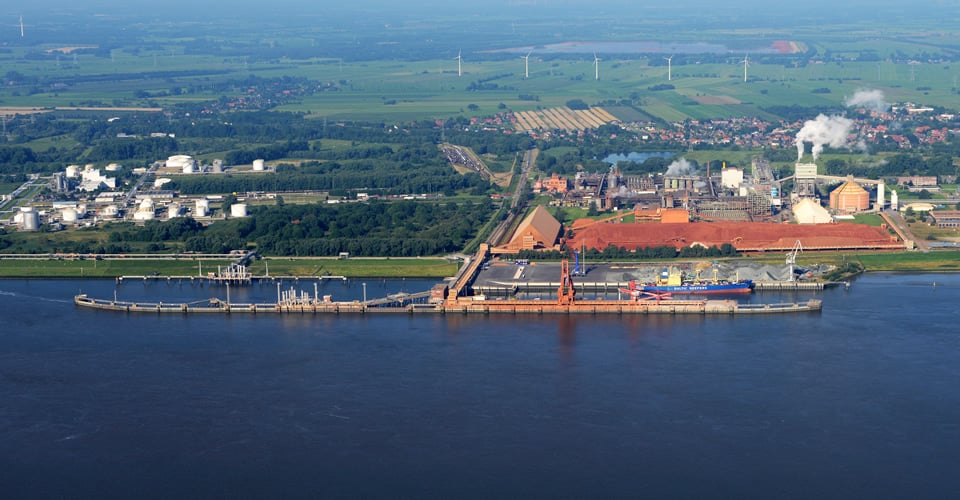Oil & Gas
GERMANY: WORLD'S FIRST ONSHORE LNG PLANT TO BE OPERATIONAL BY 2027.
Irene Jerry

Germany is betting on the world's first onshore LNG plant to accelerate its carbon neutrality efforts and enhance energy security. This pioneering plant will handle low-carbon energy sources, marking a significant step towards Germany's green transition. The German government has increased LNG imports, particularly since the Russian-Ukrainian war led to a halt in Russian gas supplies to Europe. To mitigate potential external shocks, Germany has deployed floating regasification and storage units (FSRUs) to replace the lost pipeline gas from Russia.
Construction has commenced at the German port of Stade for the opening of the world's first onshore LNG terminal, set to begin operations in 2027. Known as the Hanseatic Energy Hub (HEH), this terminal will have an annual capacity of 13.3 billion cubic meters of natural gas and a capital cost of €1.6 billion. Once operational, it will meet over 15% of Germany's current LNG demand and will also manage low-carbon energy sources, contributing to the country's green energy transition. Major European energy companies such as EnBW, SEFE, and ČEZ have secured long-term capacities at the terminal.
The HEH plant's launch coincides with rising global LNG demand, which is expected to continue growing in the coming decades. Shell's LNG Outlook 2024 report forecasts the LNG market capacity to reach 685 million tonnes by 2040, up from 404 million tonnes in 2023. Despite high LNG prices due to supply-demand asymmetry, European countries are establishing gas hubs and LNG terminals to enhance energy security and support decarbonization goals. The Energy Outlook report by ICIS predicts an 8% increase in gas demand and a 2.9% increase in electricity demand in Europe in 2024.
Germany's strategy includes using FSRUs at ports like Stade to address LNG availability issues in Europe. GAC, a leading shipping and logistics company, has recognized the significance of Stade Port as a key location for Europe's energy sector. With its strategic position and new office at the port, GAC is well-positioned to support the world's first onshore LNG terminal and meet the future needs of tanker customers. GAC's Managing Director, Theiss Lennart Holm, emphasized the company's commitment to supporting Germany's energy needs through its expertise and experience in the LNG business.
